Dubai: In countries with high vaccination rates, the number of new infections had decreased significantly. But that was only for a brief spell. Now, the cases are spiking again, from Argentina to Zimbabwe. Even in places or countries with high rates of vaccination.
For example, in the US, there was a 50 per cent increase in new cases in at least 38 states, as of July 18, 2021. Why? Scientists describe COVID-19 as a “marathon”, not a sprint. Beneath the complexities of the battle against the current pandemic, one simple fact remains: if the coronavirus is introduced into a susceptible population — and those people are able to mix — there will be a spike in transmission in the community.
In 2020 and 2021, we have seen this happen in several places, including the UK, Israel and the US — three of the most highly vaccinated nations.
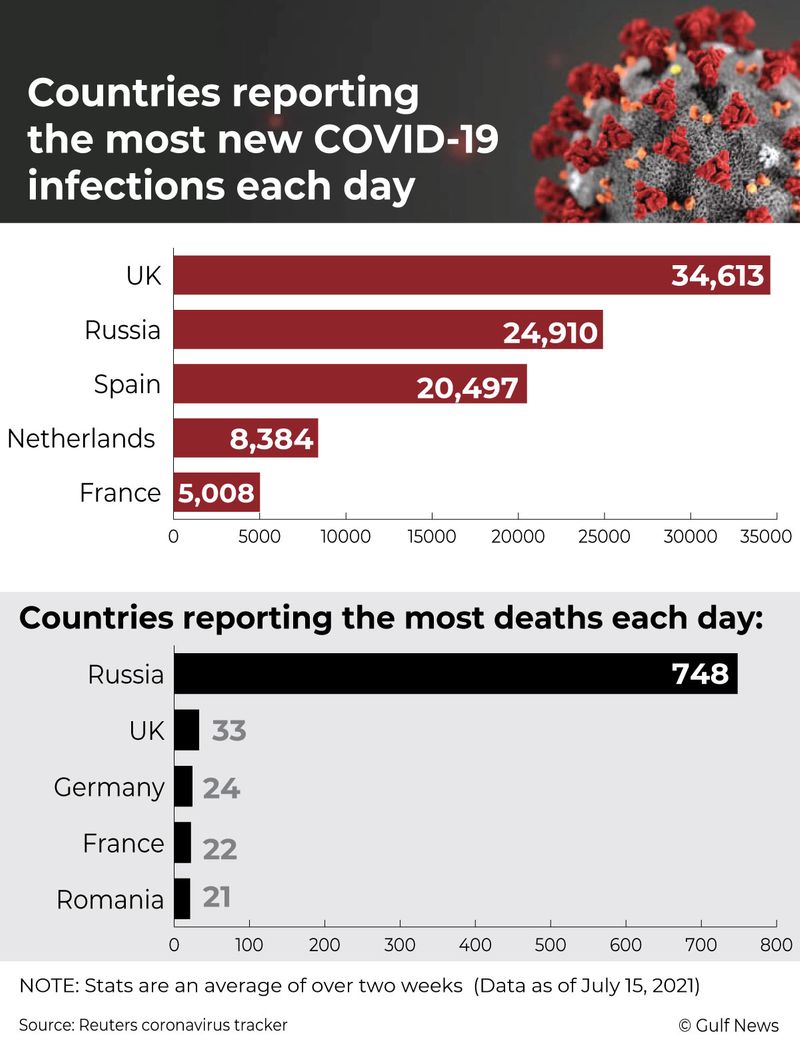
What’s behind the fresh spike in COVID-19 cases?
It’s a complex cause-and-effect equation. The first, and biggest, factor at the moment is the Delta variant. The dominance of this highly transmissible COVID strain has been blamed for the surges. Second: not enough effective vaccines are being produced and distributed. Third, when reopening in the midst of insufficient levels of COVID-19 inoculations, those who are vulnerable (unvaccinated) are bound to suffer.
A premature opening up (i.e. no more masks) may be popular, but experts described to the New Scientist that such a move as “unethical”.
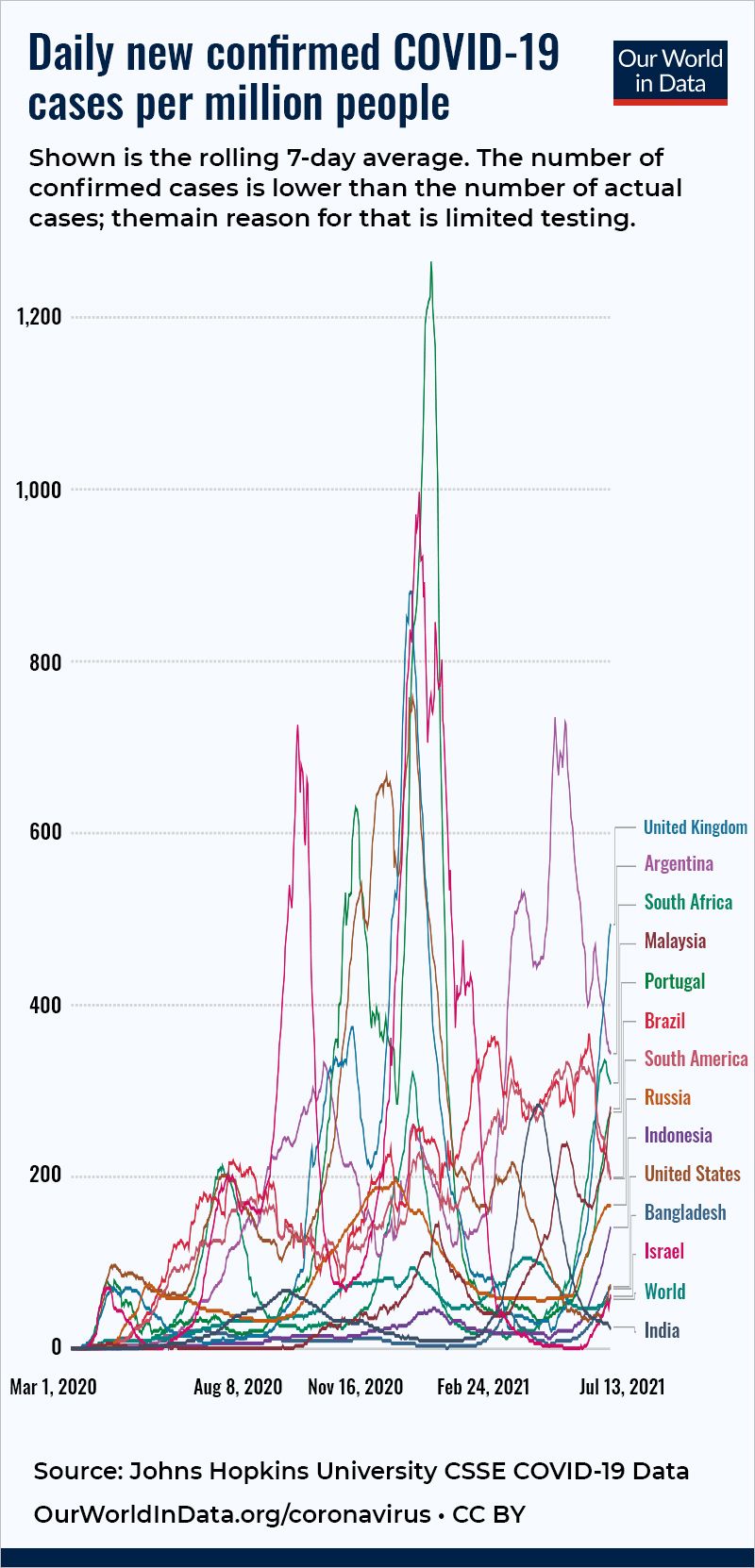
Why do scientists say UK’s reopening is a leap into the unknown?
About 1,200 scientists said as much about the UK’s “Freedom Day” on Saturday (July 18, 2021). Scientists called it “a dangerous leap into the unknown.”
A study of human behaviour amidst the current pandemic shows this much: before reluctantly seeing a doctor, a person exposed to the coronavirus may take up to 2 weeks before they become sick enough to seek medical help.
Having a testing facility and counting cases are great. But what counts even more is the time-lag in counting. The cycle of not knowing is problematic. Knowing the people who become ill after being exposed to that one person days, if not weeks after the event, is inherently problematic.
How long does it take to see the effect of a policy change in restrictions?
There is usually a delay between a policy change — such as reopening businesses or relaxing occupancy limits in a community — and when the effects of the change show up in the COVID-19 data. An increase in the number of cases or hospitalisations will not usually be seen within a week — or even two weeks — later.
In any geographic area, this phenomenon — the delay in self-reporting and treatment — presents a key challenge. Some experts say it may take as many as six to eight weeks for the effects of a policy (reopening/new restrictions) or widespread behaviour change to appear in the population-level data. It also depends on the behaviour of people.

Does that mean social distancing and mask mandates still work?
Yes. Experts say that if everyone continues to wear masks, practise good hygiene and social distancing, reopening will have a much lower impact on the so-called R0 — the transmission rate of the virus — compared to communities where people do not adopt these safety precautions.
What is the expert advice on how to behave when society reopens?
It’s perfectly understandable that people want to be“normal” and eager to be able to go out and socialise as communities reopen. People resumed their normal activities in the spring and summer of 2020 — but the number of COVID infections remained high in many areas. The result: as soon as people increased their activities and contact with each other, transmission of the virus was easily rekindled.
Medical experts urged reopening communities to continue diligent COVID-19 precautions, including physical distancing, hand-washing and mask-wearing, and monitoring for symptoms. Unfortunately, the combination of reopening and lapses in these infection prevention efforts has caused the number of coronavirus infections to rise again.
Does an increase in tests lead to a corresponding spike in cases?
Not necessarily, say data scientists at Johns Hopkins University. “During a surge, the actual number of people getting sick with the coronavirus is increasing. We know this because in addition to positive COVID-19 tests, the number of symptomatic people, hospitalisations and later, deaths, follows the same pattern," a JHU report says.
Will we see more situations like in India, where cases spiked rapidly overwhelming health systems?
The short answer, sadly, is yes.
Globally, there’s been an encouraging downturn in daily new cases in May 2021, but despite this, cases are still at a very high level overall, with worldwide statistics masking huge differences across countries and areas. The global vaccine rollout is also progressing slowly, with most of the world still susceptible to COVID-19. These factors mean there’s potential for further spikes like those seen in India.
Where are the new COVID-19 cases rising:
Argentina
Argentina has been one of the hardest-hit countries in the region in terms of cases and deaths per capita, with some 4.7 million confirmed infections and a death toll expected to pass 100,000 people soon.
Australia
Australia remains under an extended lockdown — also as a result of a new outbreak blamed on the Delta variant. On Monday (July 19, 2021), Australian health officials stated the state of Victoria will extend a COVID-19 lockdown beyond Tuesday despite a slight drop in new infections as the country’s two biggest cities fight to stop the spread of the highly-transmissible Delta variant. Victoria state Premier Daniel Andrews said lockdown rules would not be lifted as cases were still being detected in the community, promising more details would be provided on Tuesday. In New South Wales, which reported 105 infections and fourth death linked to latest outbreak, people were asked to prepare for more stringent social-distancing rules.
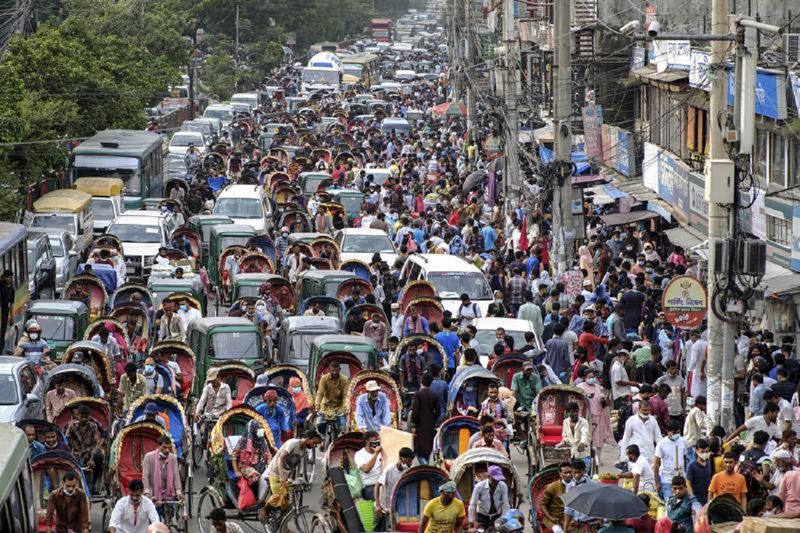
Bangladesh
Bangladesh has lifted the lockdown for Eid Al Adha, exasperating experts. The country COVID-19 cases surpassed 1.1 million on Sunday. The official data showed that 39,806 samples were tested in the previous 24 hours across the south Asian country. AP reported that tens of millions of Bangladeshis are shopping and travelling this week during the eight-day pause in the country’s strict coronavirus lockdown that the government is allowing for Eid Al Adha. Experts who warn it could exacerbate an ongoing surge fuelled by the highly contagious delta variant, first detected in neighbouring India.
India
May was a brutal month for India, with cases per day peaking at around 414,000. Since then, it’s been a steady decline, although the worse is not yet over for a country of 1.4 billion people.
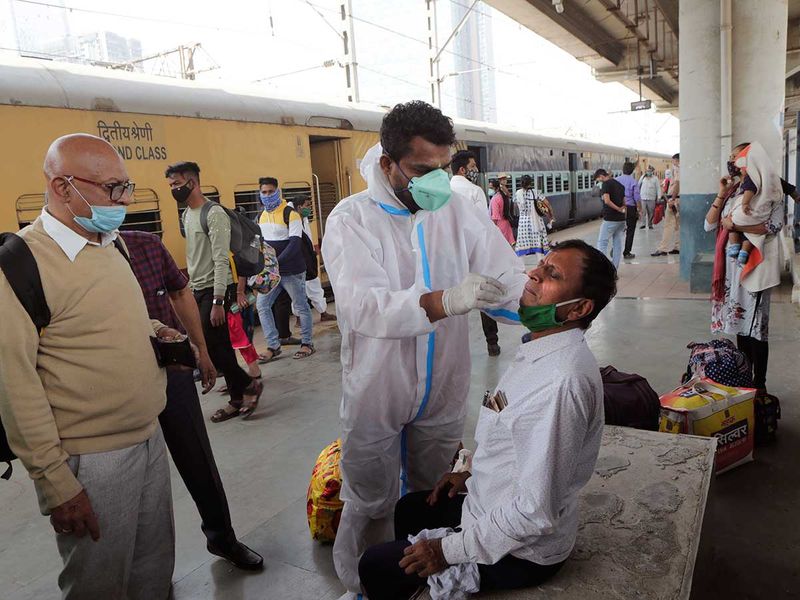
The decrease continued on Thursday (July 15), with the Reuters coronavirus tracker reporting 39,760 new infections, which is 10 per cent of the peak on May 9. India’s health ministry reported 41,806 fresh coronavirus infections on Thursday, In the last seven days, 20 infections per 100,000 people have been reported. So far, 30,987,880 cases and 411,989 coronavirus-related deaths reported in the country since the pandemic began.
Vaccination programmes have picked up pace despite a shortage of jabs. Around 391 million shots have been administered since the inoculation programme started on January 16. But fears of a third COVID-19 wave persist amid the spread of the Delta variant. Moreover, several states have been gradually easing restrictions on movement, and the tepid pace of vaccination hasn’t helped either. But a return to horrors of May is unlikely.
Indonesia
Indonesia is preparing for a further spike in coronavirus cases as the Deta variant continues to spread. A senior minister has said that the country is already grappling with a "worst-case scenario" COVID-19 situation. Tough curbs have been imposed, but only 5.8 per cent of its 270 million people have received both jabs. The tally of more than 54,000 cases was the latest of many peaks in the past month. The government has converted buildings into isolation facilities, deployed fresh graduate doctors and nurses to treat COVID-19 patients and imported oxygen and drugs, he said.
Israel
Despite one of the world's fastest inoculation campaigns, daily coronairus infections in Israel climbed to more than 700 on Wednesday. Most cases are mild and serious cases remain relatively low — but almost all new cases are due to the contagious Delta variant. More than 5.7 million people of Israel's population of 9.3 million have been vaccinated at least once. Some 5.2 million people have received two doses. Israel has a standing mask-wearing mandate for people gathering indoors, but adherence is poor — even on public transit and in hospitals — and enforcement is lax.
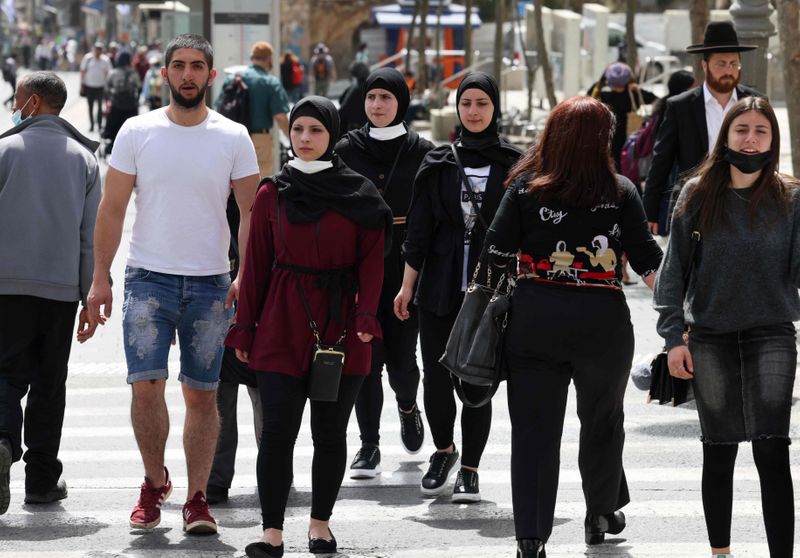
European Union
The Delta variant of coronavirus has wrecked Europe’s plans to return to a life without masks and social distancing. While vaccinations have allowed several countries to open up, a new surge in COVID-19 cases forced the reimposition of measures to tamp down on the spread of the virus. Britain is the lone exception as Prime Minister Boris Johnson moves ahead to lift COVID restrictions.

European countries have so far reported around 49,268,000 infections and 1,282,000 deaths caused by COVID-19, according to the Reuters coronavirus tracker. The continent is now reporting a million new infections every nine days. Of every 100 infections reported worldwide, around 27 are from Europe.
Resumption of nightlife and Euro 2020 matches, where unmasked spectators thronged the stadiums, have been blamed for the spike in new infections. Many countries, including France, the Netherlands, Greece and Spain, announced new restrictions last week. All these countries are battling vaccine scepticism as well.
Japan
Japan has recorded 825,000 COVID-19 cases and nearly 15,000 deaths so far. A surge in new cases was recorded at 2,991 seven-day average as of July 18, 2021 — the same level as on December 16, before the January 2021 surge — which also re-occurred in May.
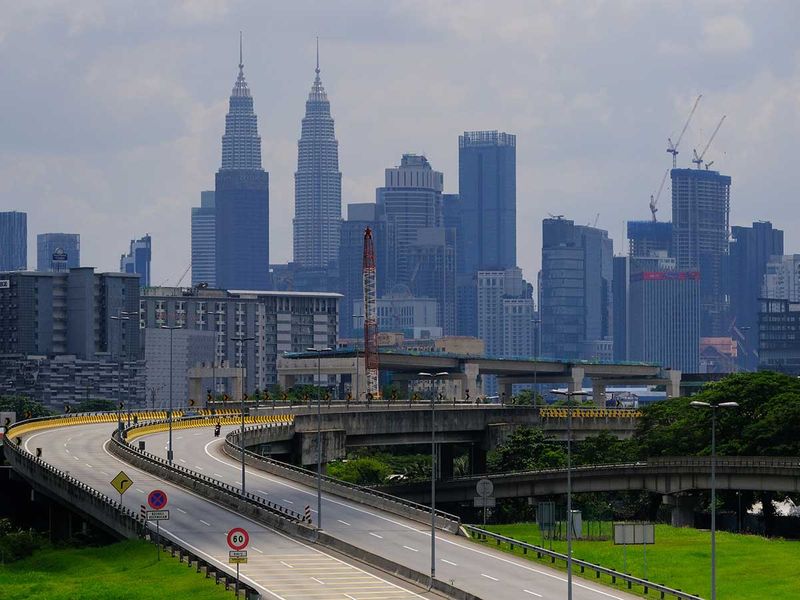
Malaysia
Malaysia has seen a spike in daily new cases in the past week, with record high cases and fatalities pushing the national tally over 900,000 cases and 7,000 deaths. There were 10,972 new cases reported on July 19, 2021 in country. In the prior 24-hour period, there were 129 fatalities, bringing the death toll to 7,148. There are still 915 patients in intensive care units, with 435 requiring ventilator support.
Portugal
In Portugal, 86 per cent of new cases (nearly 9 in 10) cases are the Delta variant. It is dominant in all regions of the country, the genomic sequencing data between June 28 and July 4 shows according to a report by Dr Ricardo Jorge at the country’s National Health Institute. In the north, it accounts for 88.2 per cent and in the centre to 81.8 per cent. The Alpha variant, originally identified in the United Kingdom, now represents 10.2 per cent of cases nationwide. The report indicates that even “no new cases of the Lambda variant (C.37) were detected, which has marked circulation in the regions of Peru and Chile.” To date, Portugal has reported 927,424 total cases, including 17,199. Nearly 11 million COVID-19 vaccine doses have been administered.
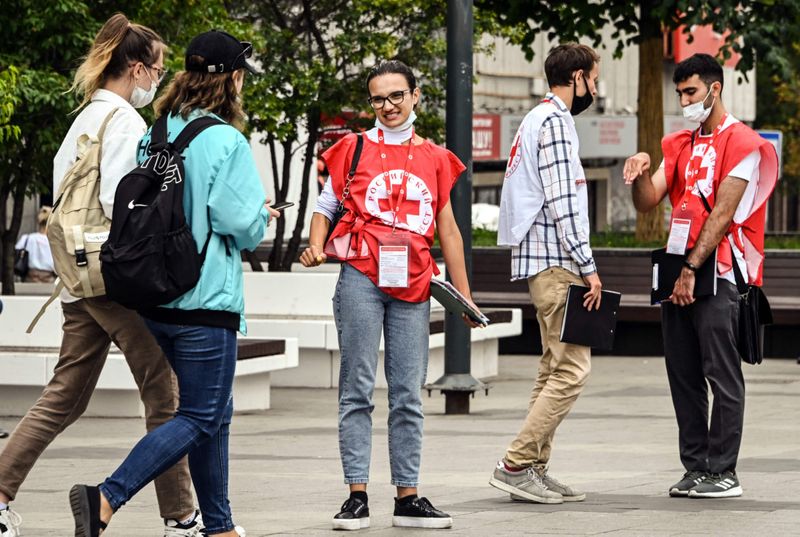
Russia
Russia is facing a rising death toll in the third wave of the pandemic. Health officials on Thursday recorded 791 COVID-19 deaths in the last 24 hours.
Russia, the fifth worst-hit country in the world in terms of cases, has seen a wave of new infections driven by the Delta variant over recent weeks. The problem is exacerbated by a vaccine-sceptic population, an AFP report said. An independent poll last week showed that 54 per cent of Russians do not plan on getting a COVID-19 jab. With 144,492 deaths from the virus, Russia has the highest official COVID-19 toll in Europe.
South Africa
South Africa is recording an average of about 20,000 COVID-19 cases a day, with 31 per cent test positivity rate. "The Delta variant has caused enormous strain on the resources ... Every hospital is getting strained, every healthcare worker is getting strained," said Fatimah Lambat of the charity organisatrion Gift of the Givers in a Reuters interview. The ongoing vaccination campaign has been slow, with just 4.2 million doses administered to a population of 60 million. Officials aim to reach a vaccination rate of 300,000 a day by the end of August.
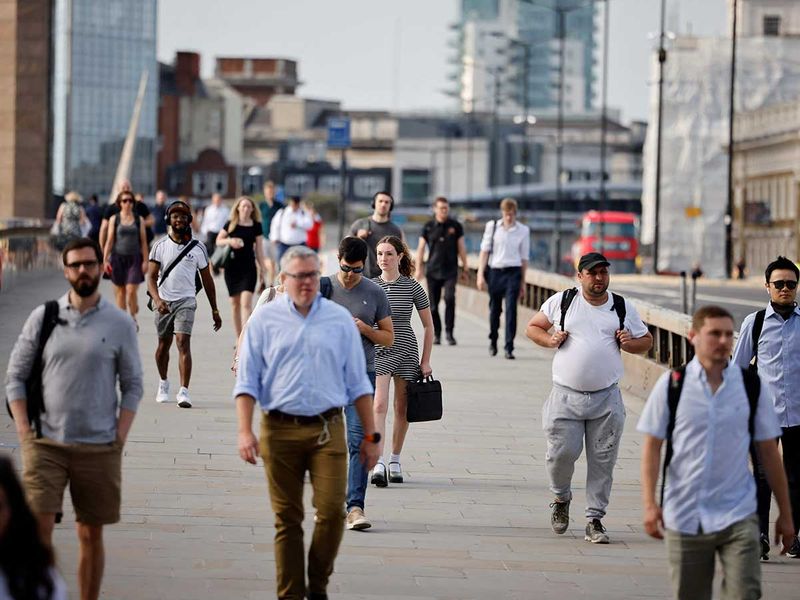
United Kingdom
COVID-19 cases in the United Kingdom spiked in the last few days with nearly 40,000 cases daily. It is the highest number of daily infections since January 15, 2021, when 55,761 cases were recorded. More than 40 deaths were also reported. The spike in cases comes as Health Secretary Sajid Javid announced that two-thirds of adults in the country have now received both doses of a COVID-19 vaccine.
One of the gravest concerns is that if England’s number of infections grows, the chances of a variant emerging with even greater vaccine evasion are greatly increased. “All the experience we have with viruses is that if you let them (virus) replicate in a partially immune population, you will select inevitably for [vaccine] escape variants,” virologist Richard Tedder at Imperial College London was quoted in a report.
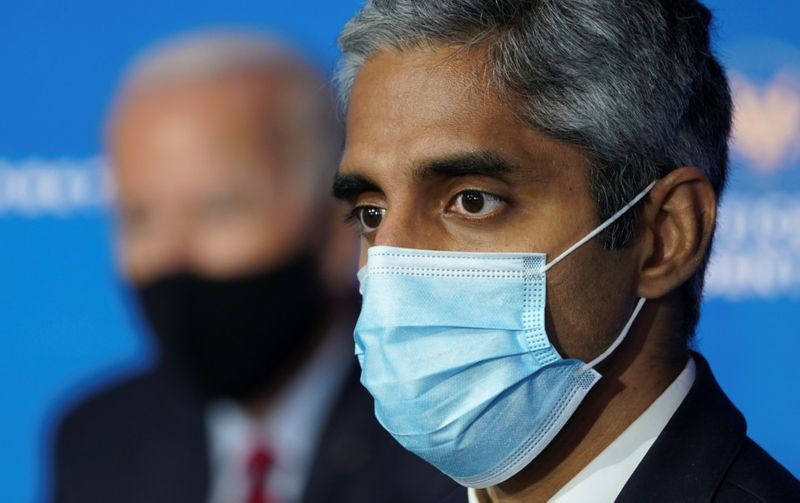
United States
The US still leads the world in total infections and deaths. One disconcerting sign is the 47 per cent jump in confirmed cases within one week, the largest such rise since April 2020. Health officials said it may be premature to decide on a “booster shot” without clear scientific data to back its utility.
In California, cases of “breakthrough” infections had been confirmed — several people who had received their second dose of the Pfizer shot in March tested positive for COVID-19 in early July, though the cases were mostly mild. Others who refused to be vaccinated found themselves dealing with severe cases. Meanwhile, America’s top doctor is predicting more cities and municipalities will follow the lead of Los Angeles and reinstate mask mandates as COVID-19 cases continue to rise across the country.
Surgeon General Dr Vivek Murthy said the rising rate of cases and hospitalisations among unvaccinated Americans in many states could lead to localities reinstating mask mandates.
Zimbabwe
The country has reverted to the 2020 lockdown as COVID-19 cases rose this month. The restrictions come as Zimbabwe's number of confirmed infections has more than doubled in the past week. Monica Mutsvangwa, Zimbabwe’s information minister, said recent spike in COVID-19 cases has forced authorities to impose tighter restrictions. The government is also intensifying its vaccination programme as part of an effort to contain the pandemic. About 810,000 Zimbabweans out of a population of 14 million have received their first shot, and about 575,000 have received their second inoculation since the programme started in February. Health authorities say a majority of new cases being reported are of people who were not vaccinated.
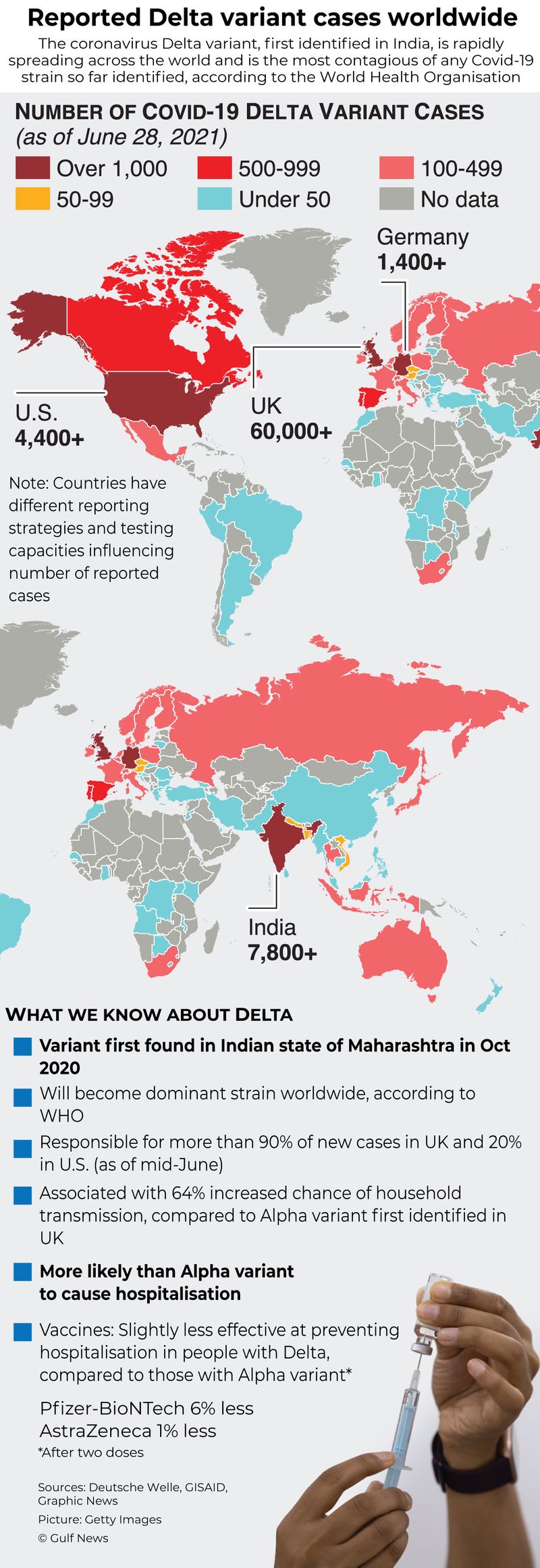
from World,Europe,Asia,India,Pakistan,Philipines,Oceania,Americas,Africa Feed https://ift.tt/2UufbI7
No comments:
Post a Comment